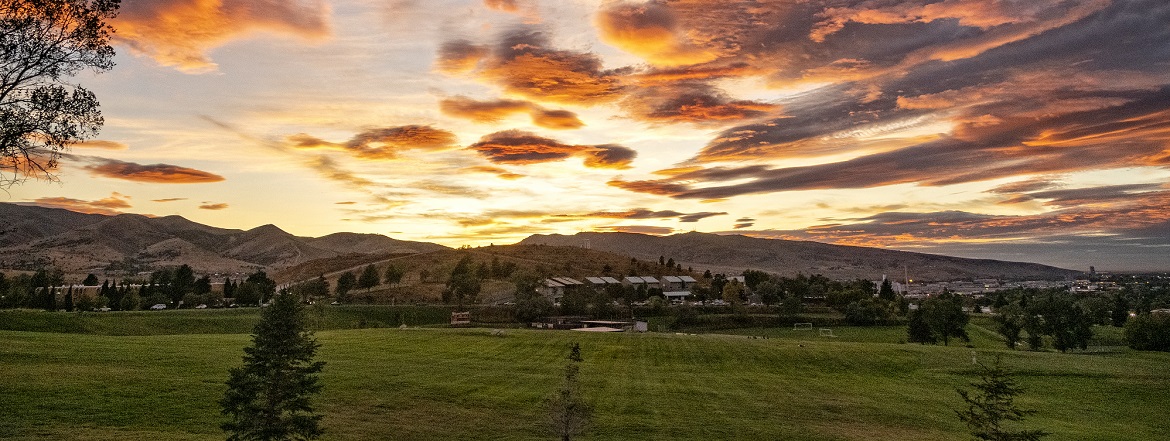School of Nursing

ABOUT US
At the School of Nursing, we shape the future of health care by preparing nurse leaders who are compassionate, skilled, and driven to make a meaningful difference. Through excellence in education, innovative practice, and impactful research, we strengthen health systems and elevate care for rural and diverse communities. Guided by integrity, collaboration, and a commitment to equity, we empower graduates to lead with purpose, advance high-quality care, and transform lives across Idaho and beyond.
MISSION
The School of Nursing develops nurse leaders who advance equitable, high-quality care and strengthen health systems through education, innovation, collaboration, nursing research, and clinical scholarship grounded in integrity, civility, respect, and service to rural and diverse populations.
VISION
The School of Nursing aspires to be a distinguished leader in nursing education, research, and practice—recognized for being as safe, compassionate, and humanistic as we are scientific, innovative, and responsive to the health needs of Idaho’s communities.
PHILOSOPHY
Nursing as Science and Art
The faculty in the School of Nursing affirm that nursing is both a science and an art—grounded in evidence, technology, and innovation, and expressed through compassion, advocacy, safety, civility, and service. Nursing integrates humanistic knowledge with scientific rigor to improve outcomes for individuals, families, and communities.
Humans and Health
People are dynamic, holistic, and multidimensional, possessing inherent dignity, worth, and rights. Health is shaped by cultural, social, environmental, and familial contexts. People have both the right and the responsibility to pursue well-being and equitable access to safe, high-quality care across the lifespan. Faculty recognize their professional and social responsibility to expand access to care through education, nursing research, clinical scholarship, leadership, public service, and civil engagement in all roles.
Nursing Practice
Nursing is a collaborative and caring profession that integrates science, humanism,civility, and cultural humility. Professional nursing practice appliesevidence, clinical reasoning, therapeutic communication, and a commitment to safety to promote health, prevent illness, and support people through life’sordinary and difficult transitions. Faculty emphasize the importance of rural and frontier nursing as central to Idaho’s workforce needs.
Nursing Education
Nursing education is a shared responsibility among faculty, students, and communities. Faculty foster curiosity, creativity, professional growth, and civility through student-centered, competency-based learning. Students are accountable partners in the educational process and are responsible for developing knowledge, skills, values, leadership, and a commitment to safe, person-centered care. Education is lifelong, extending beyond graduation into professional practice, leadership, and scholarship.
Undergraduate and Graduate Education
Undergraduate programs prepare graduates to deliver holistic, evidence-based care, to address evolving health concerns at local and global levels, and to meet the challenges of rural and frontier nursing. Graduate programs build upon this foundation, preparing nurse researchers, clinical scholars, and advanced practice nurses to generate, apply, and translate knowledge; to strengthen health systems; to influence policy; to expand access to care; and to lead innovations in quality and safety across diverse populations with professionalism and civility.
GOALS
- Excellence in Nursing Education: Build and sustain excellence in nursing education through innovative, integrative, and competency-based curricula, supported by dedicated faculty who prepare graduates for safe, person-centered, evidence-based practice across diverse settings.
- Excellence in Research and Scholarship: Advance nursing science and scholarship through discovery, integration, application, and teaching—addressing health equity, safety and quality outcomes, and interprofessional collaboration.
- Leadership in Nursing and Health Care: Demonstrate exemplary leadership in education, practice, scholarship, and service at local, regional, state, national, and global levels—shaping the future of nursing, patient safety, and health care.
- Student Success, Professionalism, and Workforce Readiness: Promote student success by fostering professionalism, civility, leadership, accountability, and a commitment to safety, preparing practice-ready nurse leaders who deliver person-centered and equitable care to meet the needs of Idaho.
- Community Engagement and Partnerships: Integrate service, learning, and practice through strong community and health system partnerships that expand access to care, improve population health, and advance safety and quality in the nursing workforce.
CORE VALUES
Professionalism: We apply nursing science, ethics, and humanism to deliver care that honors dignity, demonstrates civility and integrity, and fosters accountability in all professional roles.
Excellence: We uphold the highest standards in education, practice, nursing research, and clinical scholarship through evidence-based inquiry, continuous quality improvement, and leadership.
Equity: We use population health science and cultural humility to ensure fairness, respect, and access to safe, high-quality care for all.
Collaboration: – We foster interprofessional and community partnerships that share knowledge, resources, and trust to improve outcomes across populations.
Innovation: We leverage creativity, research, and technology to transform nursing education, practice, and healthcare delivery for the future.
Safety: We integrate evidence, systems thinking, and accountability to protect patients and communities in every setting.
Fortitude: We commit to continual learning, reflection, adaptability, honesty, integrity, and accountability—cultivating growth and strength to sustain safe, person-centered nursing practice.
